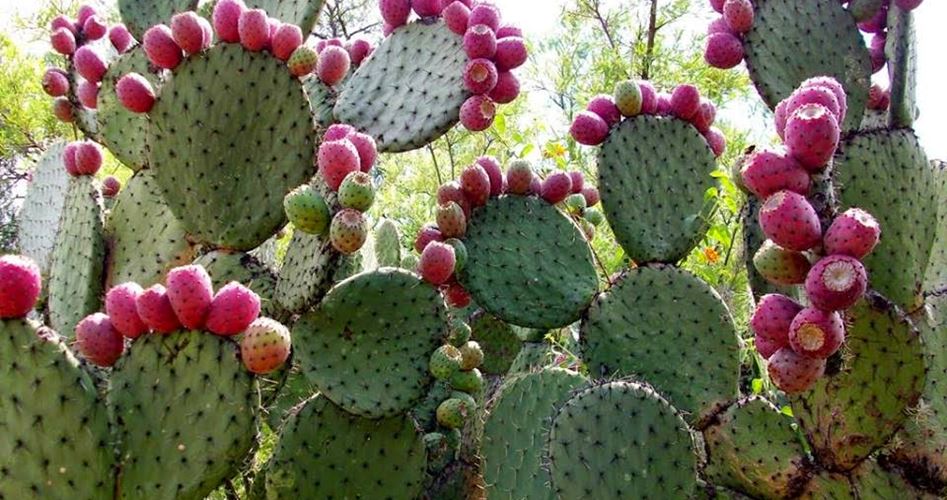Despite being a desert plant cactus fruit is called “The desert’s pharmacy”. It grows in most Palestinian cities with some calling it ‘prickly pears’ and with some studies indicating that ancient Pharaohs used cactus juice for treating many diseases and that Ancient Canaanites planted cactus in Palestine thousands of years ago. Palestinian historian Mustafa Murad Dabbagh documented the plantation of cactus in Palestine in his remarkable book “Our Country Palestine”.
Cactus pears according to food experts are full of vitamin E and amino acids and other nutrients which are useful to the body and the skin. It contains many chemicals and considered a preventive treatment for many diseases.
Cactus grows in Palestine in the spring and gets ripe in the early summer. It is a sweet fruit surrounded by a green cover covered by tiny thorns. It is eaten after it is easily peeled. Some prefer eating cactus pears after putting them in the refrigerator to be cooled.
The tree of cactus grows up to two meters or more and its leaves are large and thick containing liquid gelatinous mucus used to treat many diseases. The fruit grows on these thick leaves as flowers with beautiful yellow and orange colors at the beginning which begins to fall as the fruit grows heavy
Desert pharmacy
Pharaohs described cactus as “The pharmacy of the desert” because it is a cure for many diseases. It is also considered a rich food with many vitamins and organic substances. Pharaohs used its juice for the treatment of many diseases and used its thick leaves as a paste for the same purpose.
Speaking of the nutritional value of cactus Dr. Hassan Shaaban Al-Tamimi Professor of Nutrition at Al-Quds University said cactus contains glucose sugar fructose sugar ascorbic acid fatty oil and a substance called Tragacanth calcium oxides tannins and colored materials.
Dr. Al-Tamimi added in an exclusive interview with the PIC: “Cactus contains a high nutritional value and after conducting chemical analysis the studies revealed that cactus contains amounts of iron protein fiber energy water phosphorus fat carbohydrates magnesium potassium sodium zinc vitamin C14 vitamin B1 B2 B3 thiamine riboflavin niacin and folic acid in varying degrees”.
Dr. Tamimi stressed that cactus protects humans from many diseases especially protecting the digestive system from oxidation and raises the proportion of immunity in the body.
Nutritional value
At a West Bank herbs shop owned by Mohammed Barakat 76 years old at Bab Al-Zawia area in al-Khalil shoppers gather at the door of the shop that is full of bags of various spices.
Many plates of dried cactus tied with a rope of cannabis dangle at one of the corners of the shop looking like an old necklace. When our correspondent asked Barakat about the efficiency of these cactus plates he said: “I have been working in this field for 60 years. I learnt this craft from my grandfather and my father after him may God have mercy on their souls.”
He said that cactus benefits the body and treats late menstruation for women and stomach ulcers. “In addition these plates get grinded and dried manufacturing a paste from them to treat high alopecia psoriasis eczema and other skin infections”.
Barakat added that cactus plates are useful for the body and if soaked in warm water for three days the water could then be used for the treatment of allergic bronchitis and lung infections.















